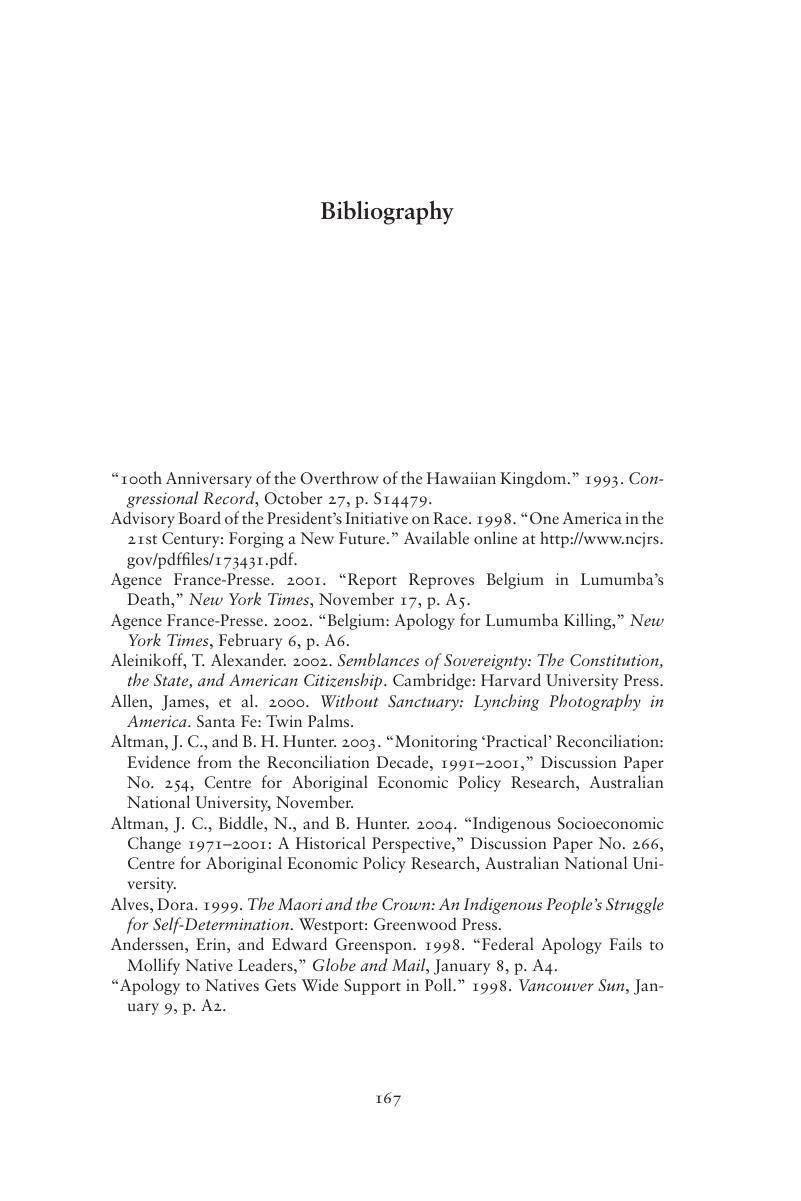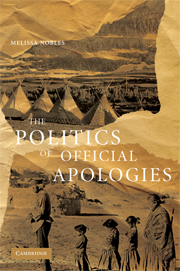Book contents
- Frontmatter
- Contents
- Preface and Acknowledgments
- 1 Toward a Membership Theory of Apologies
- 2 History of National Memberships in Australia, Canada, New Zealand, and the United States
- 3 To Apologize or Not to Apologize: National Histories and Official Apologies
- 4 Beyond Sentiment? Apologies and Their Effects
- 5 The Weight of History and the Value of Apologies
- Appendix: Twentieth- and Twenty-First-Century Public Apologies
- Bibliography
- Index
- References
Bibliography
Published online by Cambridge University Press: 24 May 2010
- Frontmatter
- Contents
- Preface and Acknowledgments
- 1 Toward a Membership Theory of Apologies
- 2 History of National Memberships in Australia, Canada, New Zealand, and the United States
- 3 To Apologize or Not to Apologize: National Histories and Official Apologies
- 4 Beyond Sentiment? Apologies and Their Effects
- 5 The Weight of History and the Value of Apologies
- Appendix: Twentieth- and Twenty-First-Century Public Apologies
- Bibliography
- Index
- References
Summary

- Type
- Chapter
- Information
- The Politics of Official Apologies , pp. 167 - 188Publisher: Cambridge University PressPrint publication year: 2008



